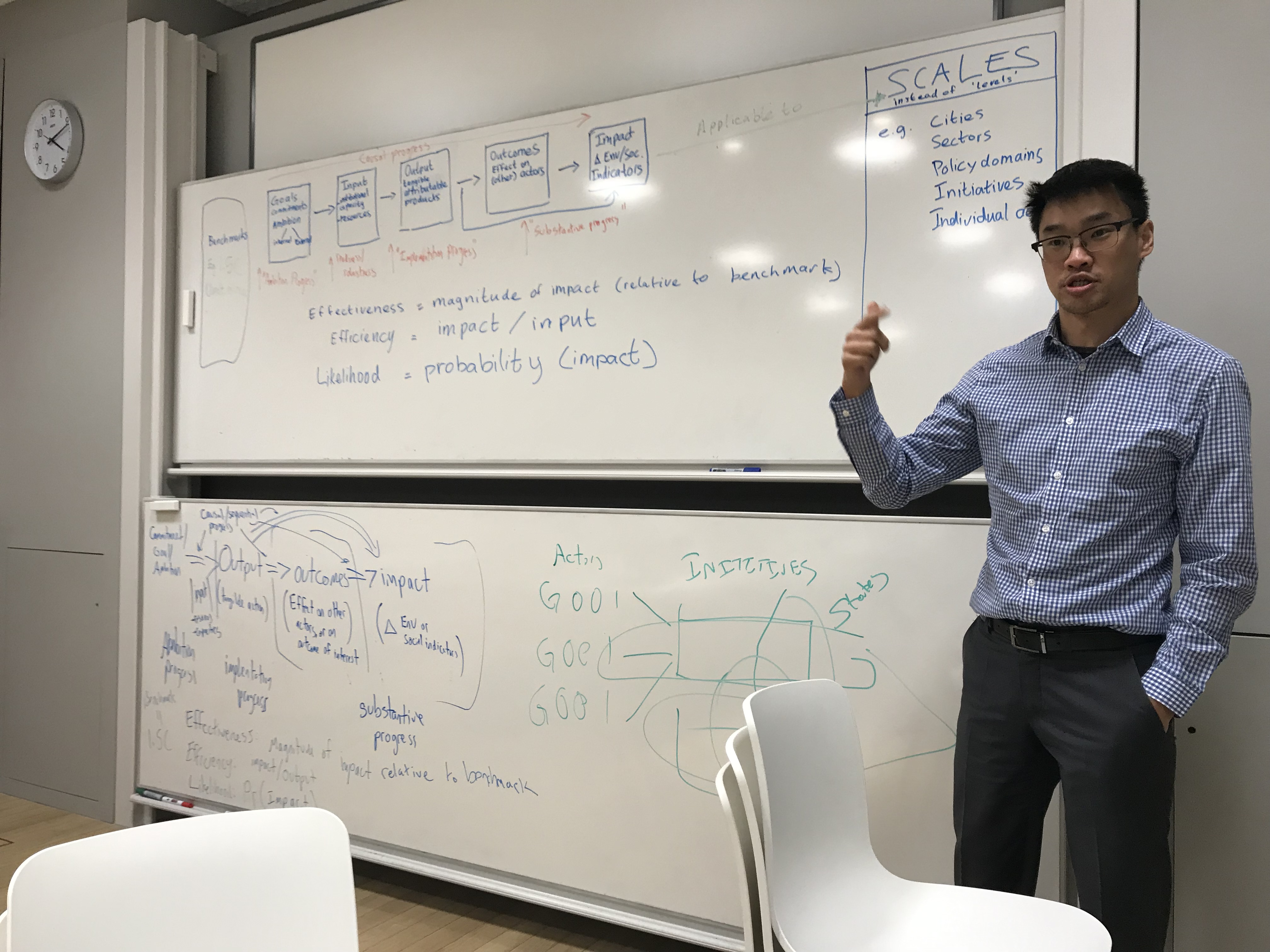
Dr. Sander Chan leads a session on tracking progress towards climate action goals during the workshop.
This September, global leaders will gather in New York City for the 2019 UN Global Climate Action Summit, kicking off a year-long discussion about how countries will step up their efforts to combat climate change. U.N. Secretary General Antonio Guterres has already asked participants to “bring plans, not speeches,” describing how they aim to peak global greenhouse gas emissions by 2020, and reach net zero emissions by 2050. Private sector, civil society, and local authorities will join national governments to hone in on action-oriented solutions that spur renewable energy, unlock solutions in forest management and agriculture, or target other key levers of decarbonization.
Tracking progress on climate action commitments will be vital to this process. Cities, regions, companies, investors and civil society have already begun implementing efforts that could help cut greenhouse gas emissions – even beyond what national policies could achieve. In addition to putting the goals of the Paris Agreement in closer reach, their work can demonstrate concrete strategies to strengthen national climate targets. Measuring progress is vital to identifying efforts that can be replicated or integrated into broader national strategies.
Recent advances in data collection and aggregation methodology have given researchers and policymakers a more accurate sense of the potential of sub- and non-state climate action. However, we know little about their actual impact to date. Many commitments are new and still underway, so researchers develop proxies to assess their progress. Actors often track information in widely divergent ways, making it challenging to gather and compare information.
On February 7, 2019, Data-Driven Lab, Oxford University’s Blavatnik School of Government, and the German Development Institute led a workshop to address these challenges. Researchers and practitioners from the United Nations Framework Convention on Climate Change, Global Covenant of Mayors for Climate & Energy, CDP, The Climate Group, ICLEI, NewClimate Institute, World Resources Institute, World Wildlife Fund, and Vrije Universiteit Amsterdam began a common effort to build a research roadmap towards meaningfully measuring progress in climate action. The conversation mapped and identified several areas for further research, including honing in on a common definition — or set of definitions — around progress, and determining the most useful ways to define and measure progress for different kinds of actors, targets, and action areas. It also delved into questions about relating concepts of progress at different scales – from individual to system-wide impacts. Finally, it explored different ways to estimate the likelihood that existing pledges would be fulfilled, information that could help anticipate what the vast universe of climate action pledges might be expected to deliver.
The outputs from this workshop will inform an academic research publication and several research analyses evaluating the implementation of local government, private sector, and civil society climate actions. Data-Driven Lab, along with partners at NewClimate Institute, PBL Netherlands, CDP, Oxford University, and the German Development Institute, will produce a follow-on report to ‘Global Climate Action of Cities, Regions, and Companies’ for the UN Secretary General’s Global Climate Action Summit this September.

Recent Comments